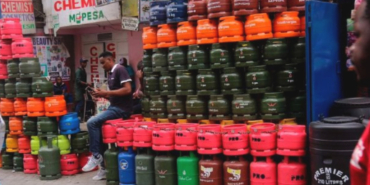16,000 Kenyan Textile Jobs at Risk as AGOA Trade Benefits Nears Expiry

With the African Growth and Opportunity Act (AGOA) set to expire in September 2025, Kenya's textile industry is bracing for potential economic repercussions.
The trade pact, which grants duty-free access to US markets for eligible African nations, has been pivotal in driving Kenya's export-oriented manufacturing sector, particularly apparel production. Since its implementation in 2000, AGOA has enabled Kenya to emerge as a key apparel supplier to the US. Major brands like Levi's and Wrangler source from Kenyan manufacturing hubs, particularly those within Export Processing Zones (EPZs).
These zones directly employ an estimated 50,000 to 55,000 workers and support an additional 10,000 to 15,000 jobs in related industries, including cotton farming, transportation, and food supply. The impending expiration of AGOA has triggered concerns among industry executives, who fear that the imposition of tariffs would severely undermine Kenya's competitiveness in the US market.
According to the founder of United Aryan, a major Nairobi-based textile exporter, tariffs could lead to significant job losses and economic instability. In response to these concerns, the Kenyan government has engaged with US officials to advocate for an extension of AGOA.
During the IMF/World Bank Spring Meetings in April, Treasury Principal Secretary Chris Kiptoo led discussions where Kenyan representatives, along with counterparts from other African nations, sought clarity on future tariff policies and emphasised the need for a longer renewal period. These talks also highlight concerns regarding recent US tariff decisions impacting other AGOA-dependent countries, including Egypt, Morocco, Ethiopia, and Ghana.
Kenya's exports to the US currently amount to approximately Ksh109.7 billion ($784 million), underscoring the importance of AGOA in facilitating economic growth. Without the preferential treatment afforded by the agreement, many Kenyan goods would struggle to compete effectively in the US market, facing stiff competition from global exporters with lower production costs.
The broader implications of AGOA's expiration extend beyond the textile sector, with analysts warning of potential disruptions to critical economic linkages. Cotton farmers who supply raw materials to textile manufacturers could face reduced demand, while transporters serving EPZs may experience diminished business prospects. Additionally, support service providers, including food vendors and logistics firms, could see their incomes shrink.








Add new comment